EU Referendum: Would Brexit prompt London to go it alone?
- Published
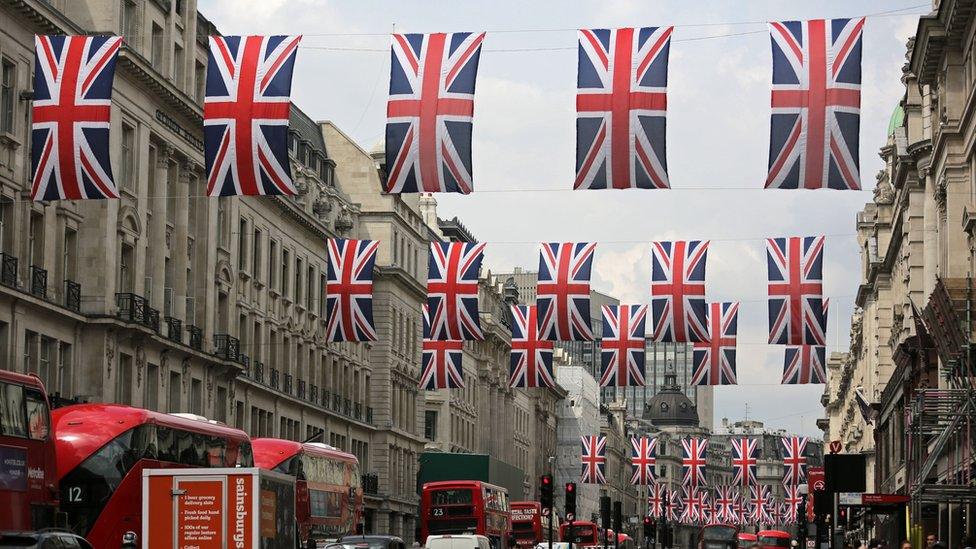
If Britain votes to leave the European Union, could it prompt London to demand its own exit - in this case from the United Kingdom?
While it's a scenario most would dismiss out of hand, Prof Tony Travers of the London School of Economics argues that although such an outcome might seem fanciful, in the longer term at least, it is far from impossible.
It was the Scottish independence referendum in 2014 that contributed to what he describes as a wave of "London nationalism", with an opinion poll at the time showing 20% of Londoners backed breaking away from the rest of the UK., external
To Londoners, as well as many other people in Britain, the capital has always felt separate, and Prof Travers says that sense of separation will only grow if the UK backs Brexit on Thursday.
"If Britain votes to leave the EU it will almost certainly be the case that London and Scotland - and possibly Wales and Northern Ireland - will have voted to stay. All the polls suggest that," he says.
He adds that under those circumstances, the logic would be as follows: "The Scots can do it and the Welsh can do it. They have much smaller economies than we [London] do. Like us, they voted not to leave the EU. We [Londoners] feel this is a totem, a measure, of how different London is from the rest of England. And therefore that needs to be recognised in local powers and local taxation."
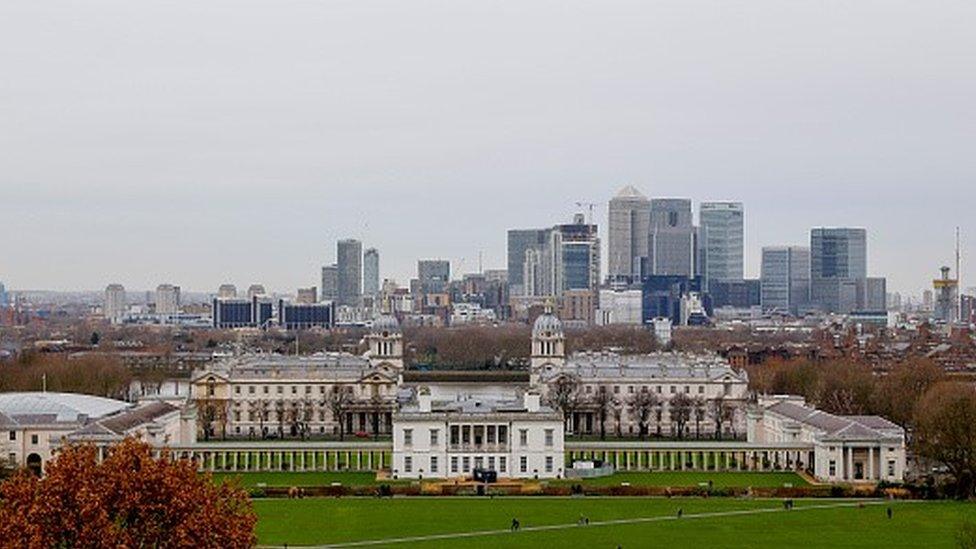
In this scenario, Prof Travers argues, new London mayor Sadiq Khan would be "well within his rights to tell the government London didn't vote for Brexit and that City Hall now viewed the government as dysfunctional".
Moreover, Prof Travers argues, a Leave vote could provide such a "systemic, existential jolt" that the mayor and others might decide London required radical change.
He adds: "If we vote to leave the EU it will be an event, in the scale of things, a bit like executing Charles I. It would be something so profound to the British understanding of themselves and their capacity to understand how they want to govern themselves.
"It will be an incredible moment in the country's history and at such a moment, why should we only do one thing?"
'Far-fetched and ridiculous'
The professor is not the only person to make the argument.
There are those like Kevin Doran, head of strategy and research at KBL European Private Bankers, who see London becoming an independent city state as inevitable, suggesting it could happen as early as 2035.
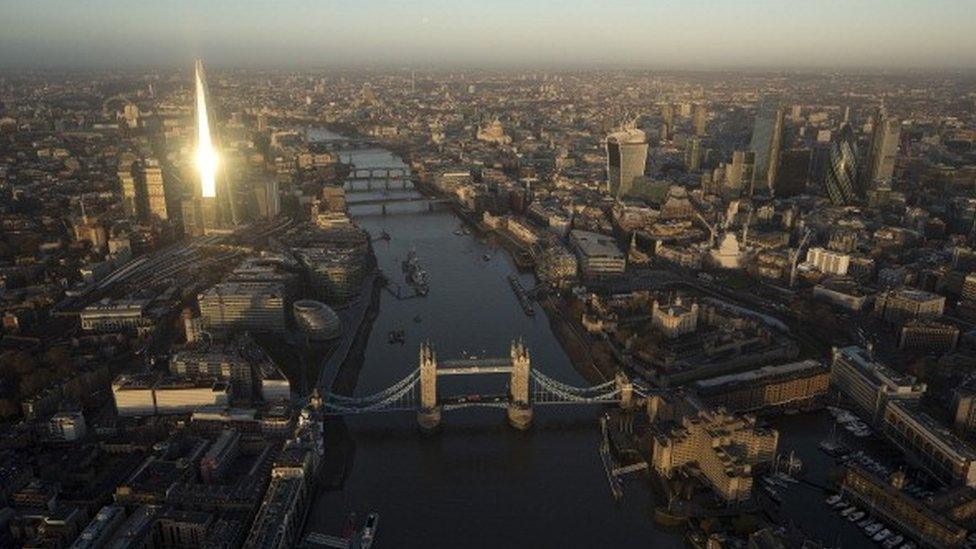
"Within 20 to 30 years' time... they [London] will hold a referendum on taking themselves out of the UK, and away they go," Mr Doran told the Yorkshire Post in 2014, external.
And it's not hard to see why London might argue it would be better off striking out on its own.
With a population of 8.7m - and forecast to grow to 10m by 2020 - the capital is already larger than Scotland and Wales combined.
Londoners contribute 70% more of the UK's national income than people in the rest of the country each year - a difference of £16,000 per person - and the capital generates 22% of all annual UK economic growth, despite accounting for only 12.5% of the population.
London's economy is estimated to be the same size as that of Sweden, Europe's seventh largest economy, and yet currently its local government has less power than the devolved governments of Scotland and Wales.
But to many, the City of London Corporation included, the idea is that London could become an independent city state is simply a non-starter.
A spokesman for the corporation, says: "The idea of London setting off as an independent city state is far-fetched and ridiculous. It is not something the City of London Corporation would support now or in the future."
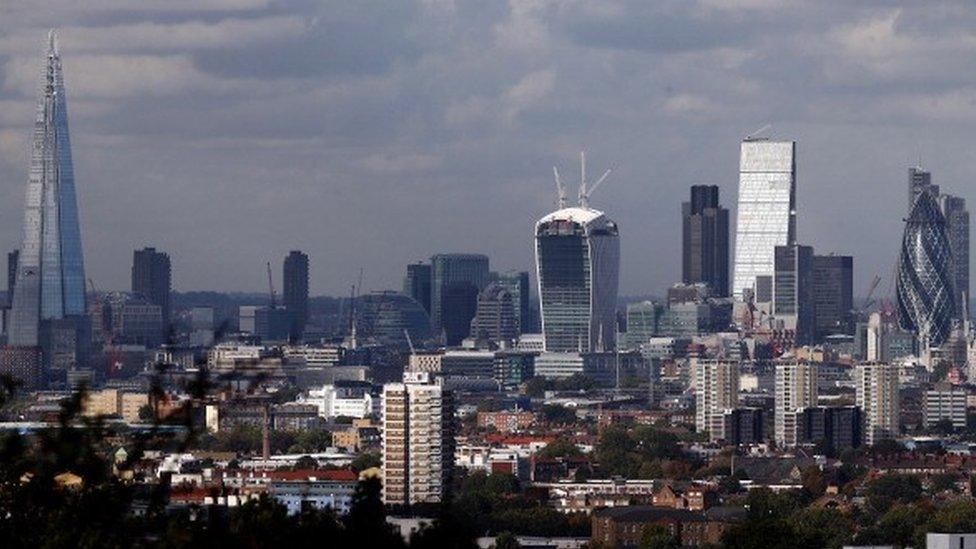
They add to break up a very large economy like the UK's into its various component parts would not make sense.
And then there is the significant economic impact that London breaking away from the UK would have on the rest of the country, given the contribution the city makes to the wider economy.
"London is unquestionably the economic capital of Europe but it would be a mistake to think of London as an island because it still relies on the rest of the UK economy," says Ben Rogers, a former Downing Street policy adviser and now director of the Centre for London think tank.
"If London is the engine of the UK economy, the rest of the UK provides the fuel," he adds.
Like the City of London Corporation, Mr Rogers argues that London's relationship with the UK is such that one cannot exist without the other.
"I can't envisage any possible world in which London would become independent," Mr Rogers says.
"Although in some ways London is becoming distinct, it's still intrinsically linked to the UK. It's not like Scotland which was once an independent country."
He points to the large proportion of university students who migrate to the capital to find work after graduating - he puts the figure at about 38% of all graduates - as one example of London's "symbiotic relationship with the rest of the country".
There are cultural reasons too, says Mr Rogers, London's position as the UK capital not least among them.

But, regardless of the outcome of the EU referendum, Prof Travers maintains London is moving away from the UK politically.
He says general election results going back to the mid-1990s show significant growth in support for the Labour Party. And once again the capital in 2015 found itself at odds with the rest of the country, with the Labour vote growing significantly in the capital while the rest of the country moved towards the Conservatives.
"London is simultaneously the richest part of the UK and also increasingly a pro-Labour city," Prof Travers says.
That makes it similar to New York, he argues, which is the richest city in the US but overwhelmingly votes Democrat rather than for the right-wing Republicans.
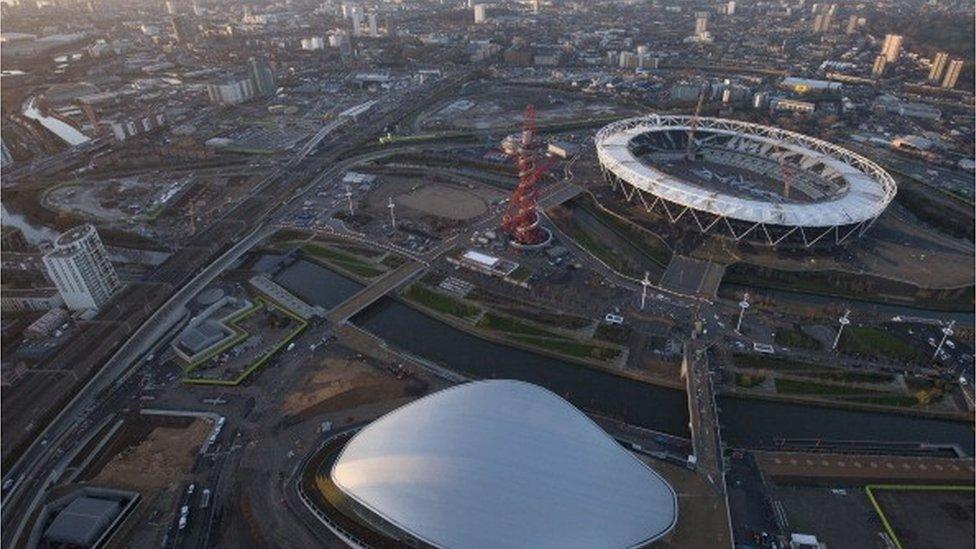
It is New York City, with its powerful mayor, independent from central government, that Prof Travers sees as the most likely model for the future of the government of London.
There is even a blueprint for such a system of government. In 2013 the mayor's London Finance Commission, chaired by Prof Travers, proposed the city be allowed to access funding from London property taxes made up from council tax, business tax and stamp duty.
He suggests this level of autonomy is coming whether the UK votes to leave the EU or not.
"You have got to say, from the Brexiteer's point of view, the logic of the UK leaving the EU could never preclude other parts of the UK leaving the union.
"Once you start conceding the idea that bits of a country can vote to break away, or a country itself can vote to break away from another arrangement, then anything is up for grabs."
- Published26 March 2013